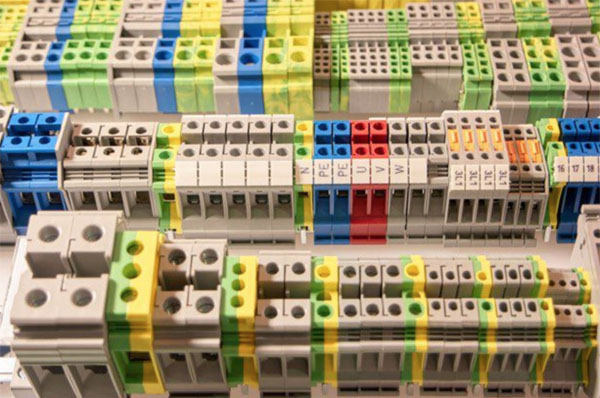The Advantages and Applications of Plastic Terminal Blocks in Electrical Systems
By Space Coast Daily // December 25, 2024

Terminal blocks are insulated connectors used to organize and secure electrical wires. They act as a central point where wires can be joined together, creating a safe and efficient pathway for electrical currents.
From the intricate wiring of a NASA launch control system to the simple circuitry of a child’s toy, you’ll find this small but mighty component in any electrical system imaginable.
These essential connectors can be made from a variety of materials, including ceramic, metal, and plastic terminal block. Each material offers unique characteristics and benefits, influencing its suitability for different applications. No matter if you’re a seasoned electrical engineer or an enthusiastic DIYer, terminal blocks provide a reliable solution for connecting and organizing wires. But which material should you choose? Read on to find out.
Ceramic vs Metal vs Plastic Terminal Blocks
Ceramic: Known for high-temperature resistance and excellent insulation, making them suitable for extreme conditions. However, they can be brittle and expensive.
Metal: Offers high conductivity and durability, ideal for heavy-duty applications. But, they can be susceptible to corrosion and pose safety risks if not properly insulated.
Plastic: Provides excellent insulation, corrosion resistance, and cost-effectiveness. They are lightweight and easy to install, making them suitable for various applications. However, they may have temperature limitations and potential for degradation under certain conditions.
Why Plastic Terminal Blocks are Ideal for Electrical Systems on the Space Coast
Florida’s Space Coast presents unique environmental challenges with high humidity, salt spray, and temperature swings. This is where plastic terminal blocks truly shine, offering a compelling combination of benefits:
- Corrosion Resistance: Unlike metal, plastic electrical components can withstand the corrosive effects of salt spray, ensuring longevity and reliability for coastal applications. This is crucial for outdoor installations, marine equipment, and industries exposed to the elements.
- Moisture Resistance: Plastic’s inherent moisture resistance combats humidity, preventing electrical leakage and ensuring safe operation in damp conditions. This is essential for everything from air conditioning units to poolside lighting.
- Durability in Heat: While plastic may not withstand extreme temperatures like ceramic, modern plastic terminal blocks are engineered to handle the heat and temperature fluctuations common in Florida. This makes them suitable for a wide range of applications, from residential wiring to industrial machinery.
- Affordability: Whether you’re a homeowner or a business owner, cost-effectiveness is always a priority. Plastic terminal blocks offer an affordable solution without compromising performance, making them ideal for projects of all sizes.
- Ease of Installation: Lightweight and easy to handle, plastic terminal blocks simplify installation, saving time and effort. This is particularly beneficial in tight spaces or when working with complex wiring configurations.
Where are Plastic Terminal Blocks Used?
The versatility of plastic terminal blocks makes them suitable for a wide range of applications across the Space Coast.
Powering Industry
Imagine the bustling floor of a manufacturing plant, with machines humming and conveyor belts transporting goods. Plastic terminal blocks are essential for:
- Automation systems: Controlling robotic arms, assembly lines, and other automated processes.
- Control panels: Organizing and connecting the intricate wiring that keeps industrial equipment running smoothly.
- Machinery wiring: Ensuring safe and reliable power distribution within complex machinery.
Illuminating Commerce:
Step into a brightly lit shopping mall, a cozy restaurant, or a modern office building. Plastic terminal blocks are at work behind the scenes, powering:
- Lighting systems: Connecting and securing wires for efficient and reliable illumination.
- HVAC systems: Ensuring proper functioning of heating, ventilation, and air conditioning units.
- Building management systems: Integrating various electrical components for optimal building performance.
Enhancing Homes:
Even within the comfort of your own home, plastic terminal blocks play a vital role in everyday life:
- Appliance wiring: Connecting and securing wires in refrigerators, washing machines, and other household appliances.
- Home wiring projects: Simplifying installations of new outlets, light fixtures, and switches.
- DIY electronics: Providing a safe and convenient way to connect wires in hobbyist projects and repairs.
Plastic terminal blocks have become indispensable components in modern electrical systems. Their safety, durability, affordability, and ease of use make them a preferred choice for a wide range of applications. The next time you flip on a light switch, turn on the TV or use your microwave, think of how these small electrical components working silently behind the scenes play a big role in powering your daily life and keeping you safe.












